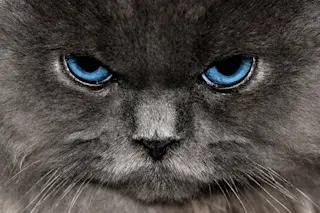Image:Flickr/FelinestIf you're a "cat person", I'm willing to bet that you are already saying "Of course cats have personalities!" But which parts of your feline friend's personality are just part of being a cat, and which vary from cat to cat? Well, according to this study, there are five traits that account for the majority of the variability between cat personalities: Neuroticism, Extraversion, Dominance, Impulsiveness and Agreeableness. Not only that, but this variation can sometimes be attributed to environmental or health differences: "Highly Impulsive cats for example, may be reacting to something stressful in their environment, whereas cats with low Agreeableness scores, showing irritability may indicate underlying pain or illness." Of course, if you are a dog person, I'm willing to bet you are already assigning those personality factors to your cat-owning relatives.The 'Feline Five': An exploration of personality in pet cats (Felis catus). "The idea of animals possessing personalities ...
Study identifies 5 common cat personality factors. (No, "cat-itude" isn't one of them.)
Discover the Feline Five personality traits that shape your cat's behavior and improve welfare for pet cats.
More on Discover
Stay Curious
SubscribeTo The Magazine
Save up to 40% off the cover price when you subscribe to Discover magazine.
Subscribe













